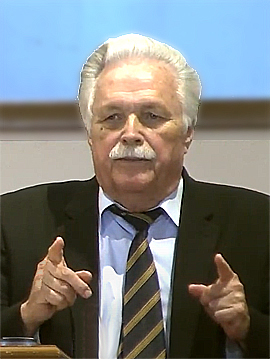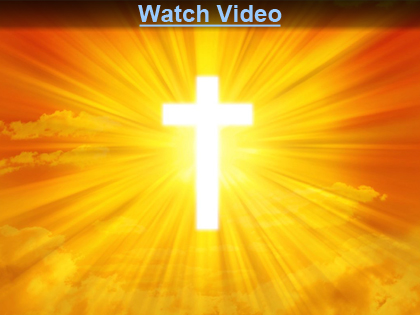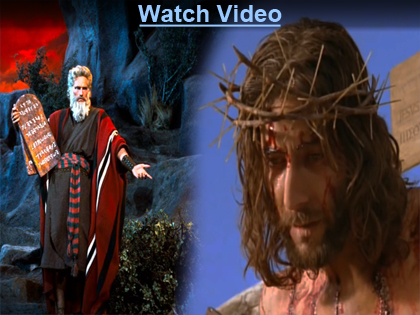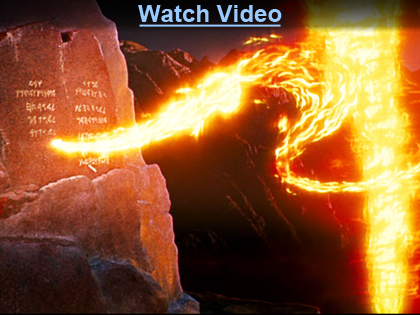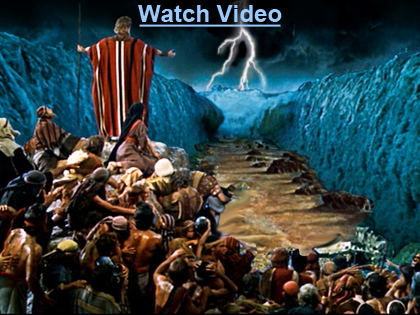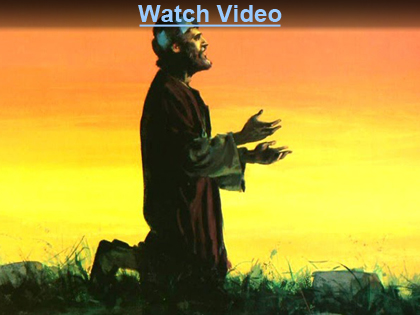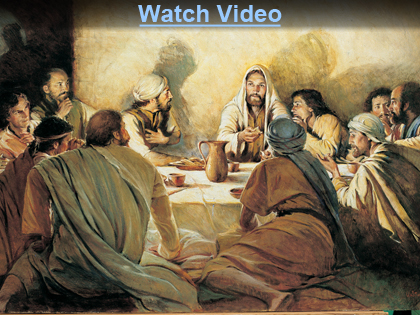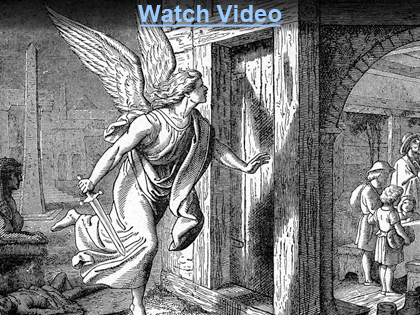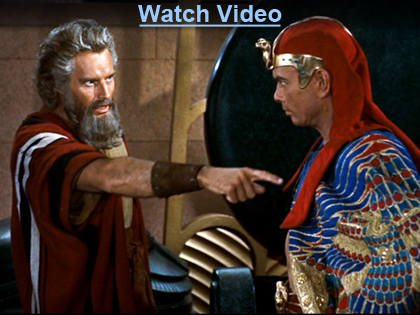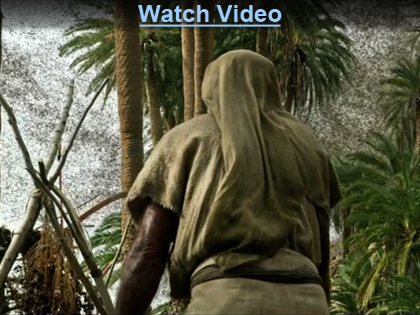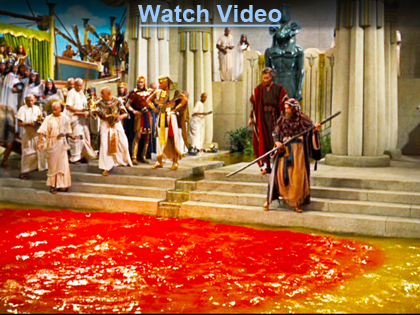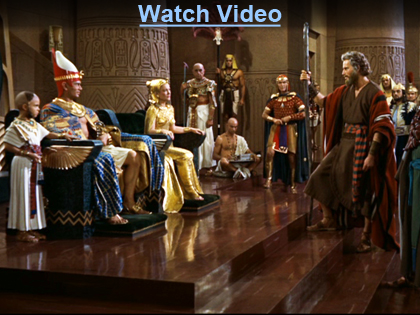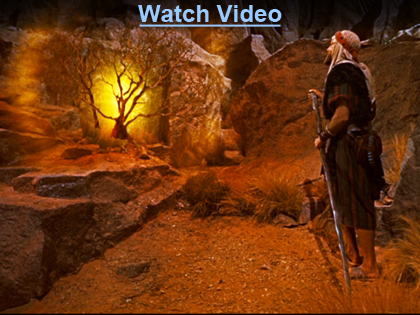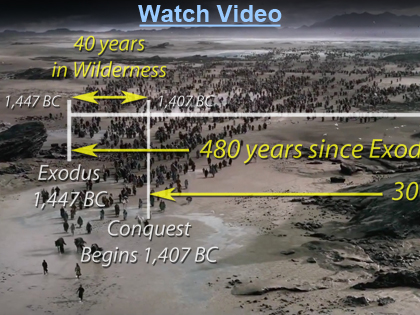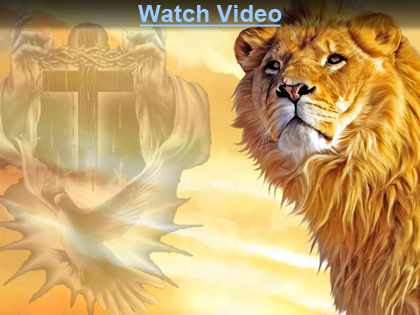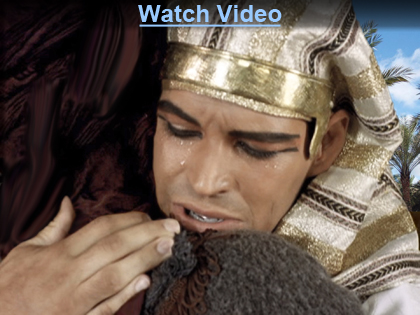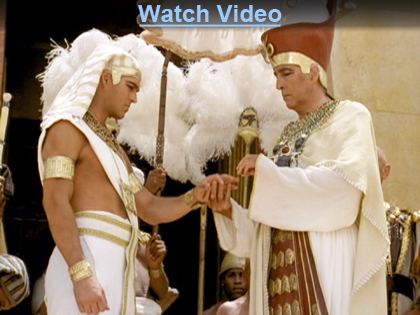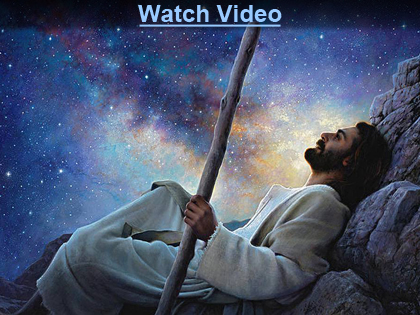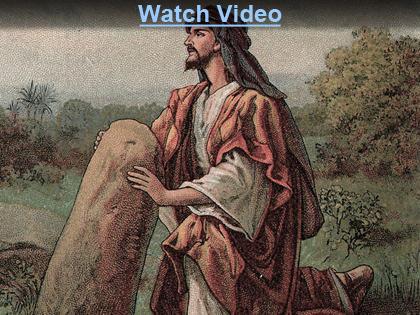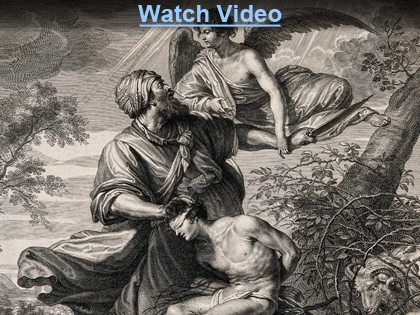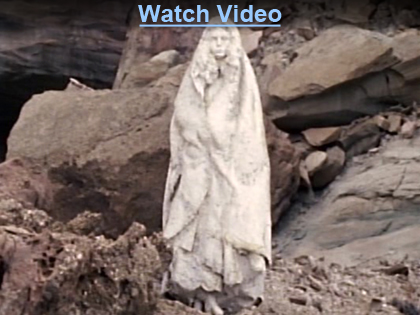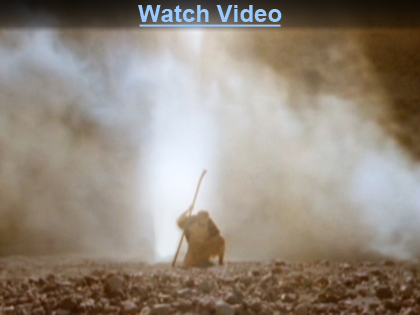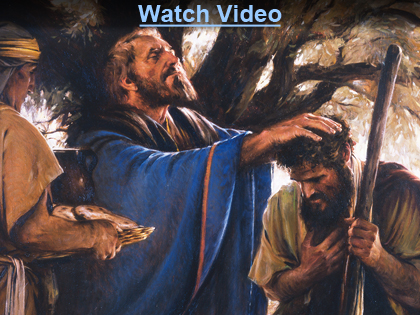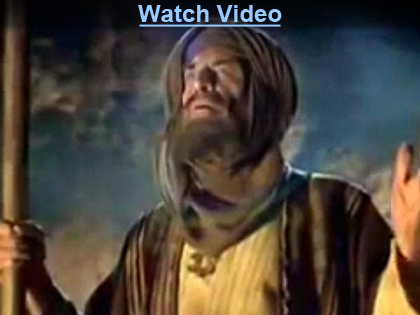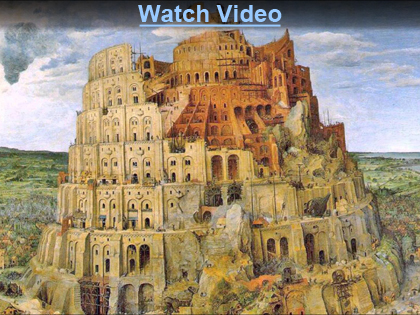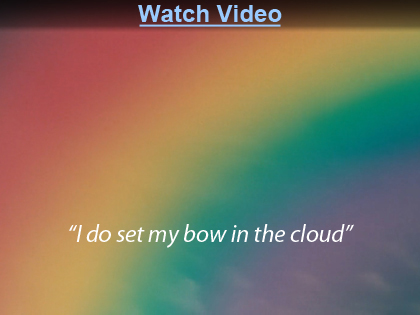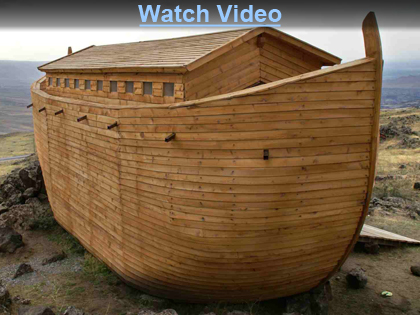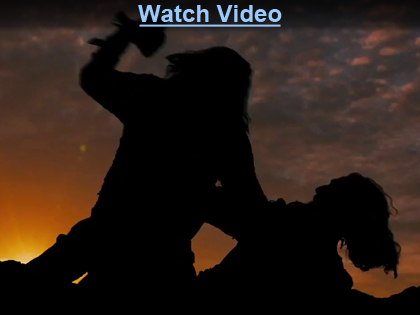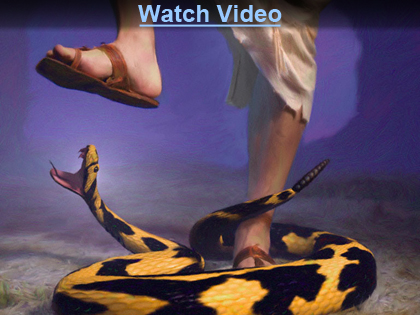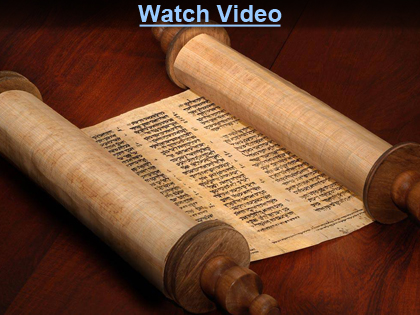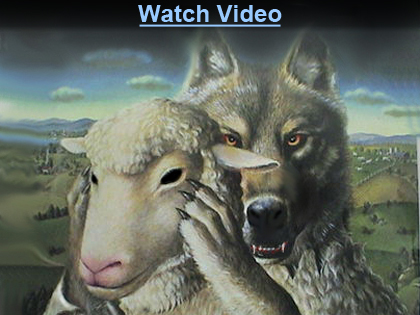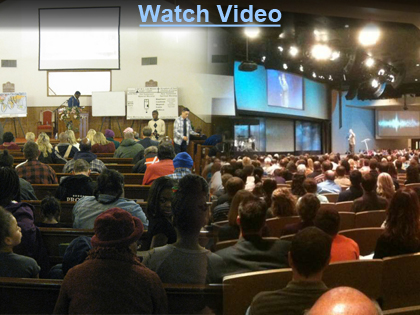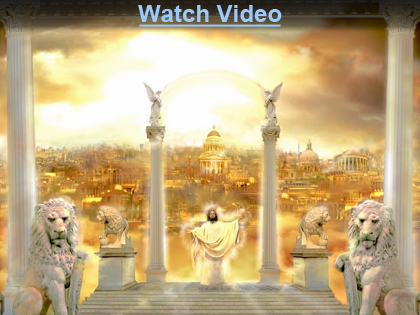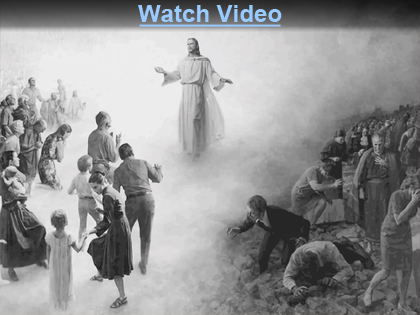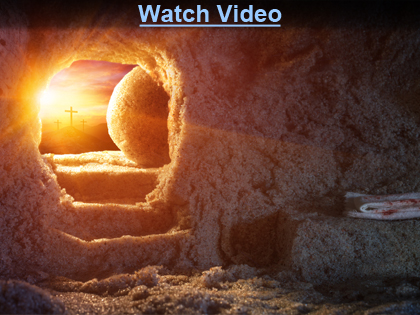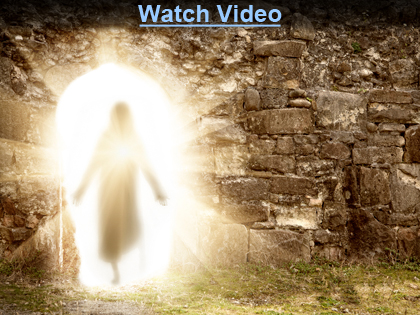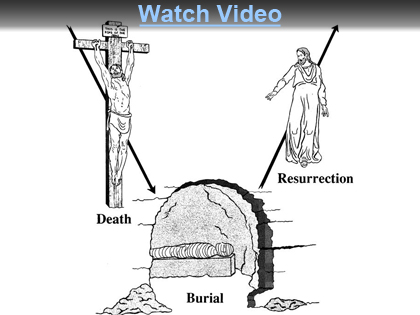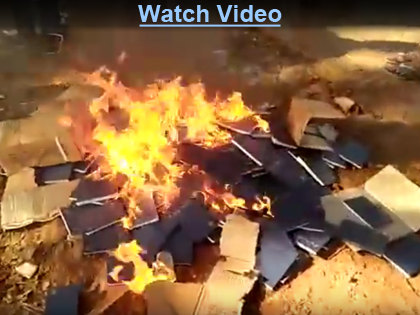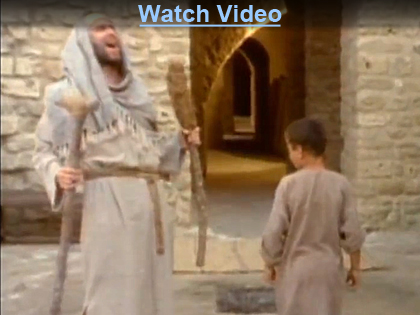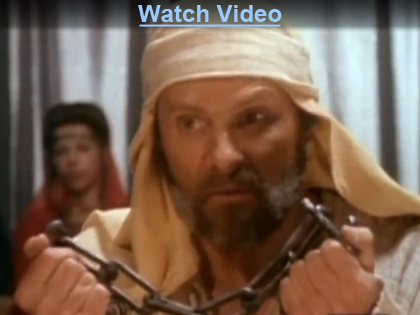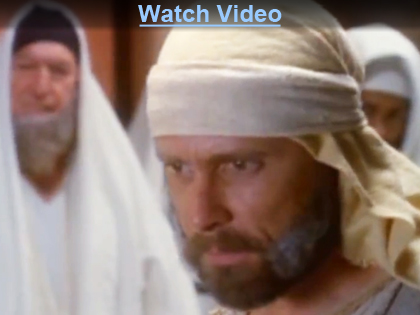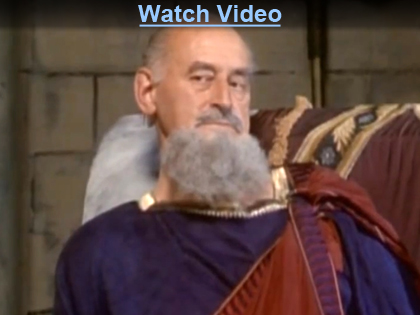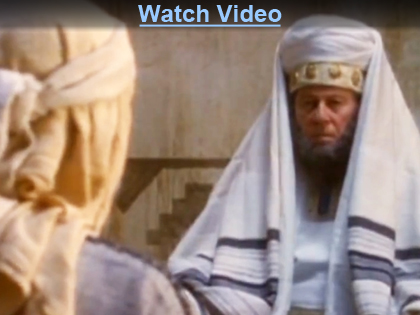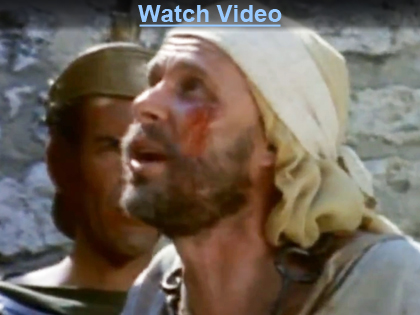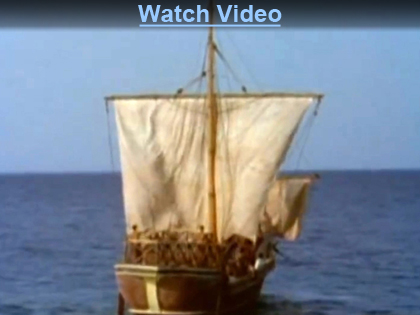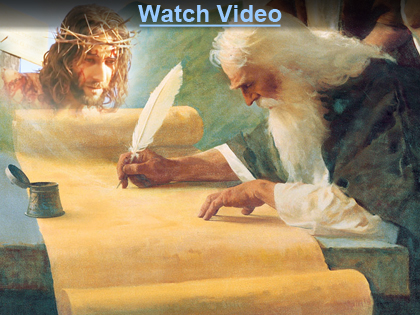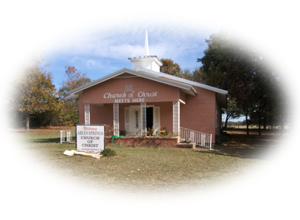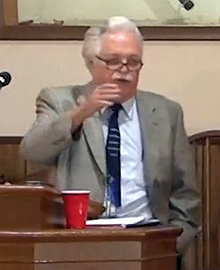
Church of Christ
Gospel Preaching
Old Time Exegesis Preaching that Teaches & Baptizes
Over Ten Years of Downloadable Sermons!
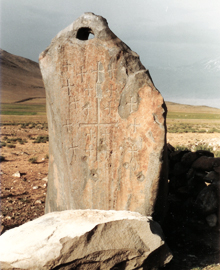
Exegesis (/ˌɛksəˈdʒiːsɪs/; from the Greek ἐξήγησις from ἐξηγεῖσθαι, "to lead out") is an explanation of a text, particularly a religious text. Traditionally the term was used primarily for work with the Bible; however, in modern usage "biblical exegesis" is used for greater specificity to distinguish it from any other broader critical text explanation. Exegesis is the expository investigation into the history and origins of the text, but may include the study of the historical and cultural backgrounds for the author, the text, and the original audience.
All of the audio files on this page are in MP3 format.
Some devices can't play MP3 files. To listen to WMA files, Please Click Here.
Sermons from Previous Years
|
2019 Kelly Lawson William Ralston |
2018 Kelly Lawson |
2017 Kelly Lawson |
2016 Kelly Lawson |
2015 Kelly Lawson |
|
2014 Kelly Lawson |
2013 Kelly Lawson |
2012 Kelly Lawson |
2011 Kelly Lawson |
2010 Kelly Lawson |
|
2006-2009 Kelly Lawson |
||||
2018 Sunday Gospel Sermons
by Kelly Lawson
Return to 2020-2021 Sermons
The New Covenant is the Covenant of Promise
THE SEED LESSON PART 31
God's division of the 10 Commandments was marked as "Duties to God," and "Duties to Man" [Mark 12:28-31]. This in Hebrews 8 is from Jeremiah 31:31ff and is quoted by the author. God long ago had prophesied in this very place that it would be done away with & replaced with a new covenant. To be sure, the author could have quoted some very convincing and powerful words of Christ and his apostles as sufficient authority for hailing the old covenant as obsolete and abolished; but it should be kept in mind that he was addressing a group of people who had a strong emotional tie with the Old Testament, and was therefore better procedure on his part to prove his proposition from Old Testament. For proper identification of the "covenant" Jeremiah had in mind, the one to be abrogated [Hebrews 8:1-7]. Gives Two basic reasons why the old covenant was abolished & nailed to the Cross. Galatians 3:1ff teaches that "... the covenant, that was confirmed before of God in Christ, the law, which was four hundred and thirty years after, cannot disannul, that it should make the promise of none effect."
 Sunday Morning Bible Class - Luke 22
Sunday Morning Bible Class - Luke 22Invitation: 1 Baptism, Prayers Requested December 30, 2018 Bulletin
The Ten Commandments - The New Covenant
THE SEED LESSON PART 30
God's division of the Decalogue (the 10 Commandments) was two tables of stone, a division honored by Christ himself who marked the divisions as "Duties to God," and "Duties to Man" [Mark 12:28-31]. This in Hebrews 8 is from Jeremiah 31:31ff and is quoted by the author as scriptural proof that the abrogation of the old covenant is nothing which should shock his readers, since God long ago had prophesied in this very place that it would be done away with & replaced with a new covenant. To be sure, the author could have quoted some very convincing and powerful words of Christ and his apostles as sufficient authority for hailing the old covenant as obsolete and abolished; but it should be kept in mind that he was addressing a group of people who had a strong emotional tie with the Old Testament, and it was therefore better procedure on his part to prove his proposition from the Old Testament. For proper identification of the "covenant" Jeremiah had in mind, the one to be abrogated [Hebrews 8:1-7]. Gives Two basic reasons why the old covenant was abolished & nailed to the Cross.
 Sunday Morning Bible Class - Luke 22: The Garden of Gethsemane
Sunday Morning Bible Class - Luke 22: The Garden of GethsemaneInvitation: Prayers Requested December 23, 2018 Bulletin
Exodus 20: The Ten Commandments - Shema Yisrael
THE SEED LESSON PART 29
(Shema Yisrael sung in the middle of sermon) God's division of the Decalogue (the 10 Commandments) was two tables of stone, a division honored by Christ himself who marked the divisions as "Duties to God," and "Duties to Man" [Mark 12:28-31]. No one could live the Law perfectly, so the "law was our school master" or tutor to bring us to Christ so that we might be saved by "the faith of Christ" [cf. Galatians 3] (1) if the Jew did his best to live up to the law (and failed, as all must fail), he nevertheless stood condemned anyway; (2) but if the Christian does his best to keep all of the commandments of the gospel (failing in particulars, as all must fail), he is nevertheless un-condemned, because through his identity with Christ being found "in Christ" and "as Christ", the righteousness of Christ, with whom the true Christian is fully justified; stands in the stead of his own failure saving his soul anyway [Galatians 3].
 Sunday Morning Bible Class - Luke 22: The Garden of Gethsemane
Sunday Morning Bible Class - Luke 22: The Garden of GethsemaneInvitation: Prayers Requested December 16, 2018 Bulletin
Parting of the Red Sea, "The Greatest Commandment", The First 2 Commandments
THE SEED LESSON PART 28
God's division of the Decalogue (the 10 Commandments) was two tables of stone, a division honored by Christ himself who marked the divisions as "Duties to God," and "Duties to Man" [Mark 12:28-31]. No one could live the Law perfectly, so the "law was our school master" or tutor to bring us to Christ so that we might be saved by "the faith of Christ" [cf. Galatians 3] (1) if the Jew did his best to live up to the law (and failed, as all must fail), he nevertheless stood condemned anyway; (2) but if the Christian does his best to keep all of the commandments of the gospel (failing in particulars, as all must fail), he is nevertheless un-condemned, because through his identity with Christ being found "in Christ" and "as Christ", the righteousness of Christ, with whom the true Christian is fully justified; stands in the stead of his own failure saving his soul anyway [Galatians 3].
 Sunday Morning Bible Class - Luke 22: "Pray that ye enter not into temptation"
Sunday Morning Bible Class - Luke 22: "Pray that ye enter not into temptation"Invitation: Prayers Requested December 9, 2018 Bulletin
Nehemiah 1
(Nehemiah 1:4) Nehemiah displays great concern over the ruins of the city of Jerusalem. He has a zeal and a passion, for both God's honor and the honor of God's people. (Nehemiah 1:5) He appeals to God's covenant with his people. (Nehemiah 1:6) Nehemiah diligently calls upon the name of the Lord in this hour of distress. He confesses both his sins and the sins of the people. (Nehemiah 1:7) He confesses that they have broken God's law and disregarded his commandments. (Nehemiah 1:8-9) Nehemiah appeals to God's covenant and promises to forgive his people. (Nehemiah 1:10-11) He brings to God's attention the fact that those in the city of Jerusalem are His people, and once more pleads for God to hear his prayer.
 Sunday Morning Bible Class - James: Faith Without Works
Sunday Morning Bible Class - James: Faith Without WorksInvitation: Prayers Requested December 2, 2018 Bulletin
The First Passover, The Last Supper
THE SEED LESSON PART 27
Jesus desires to eat a Passover with his disciples, and assures them of his approaching death, and that one of them would betray him [Matthew 26:17-21]. On each asking, Is it I? Christ asserts that Judas is the traitor [Matthew 26:22-25]. Having eaten his last supper, he institutes the Lord's Supper, to be observed in his Church as a memorial of his sacrificial death [Matthew 26:26-29]. They sing a hymn, go to the mount of Olives, and he again announces his approaching death and resurrection [Matthew 26:30-32]. Reasons why they should act differently [I Corinthians 11:7-16]. They are also reproved for their divisions and heresies [I Corinthians 11:17-19], and for the irregular manner in which they celebrated the Lord's Supper [I Corinthians 11:20-22]. The proper manner of celebrating this holy communion laid down by the apostle [I Corinthians 11:23-26]. Directions for receiving of the Lord's Supper, and avoiding the dangerous consequences of communicating in a unworthily manner [I Corinthians 11:27-34].
 Sunday Morning Bible Class - Luke 22: Jesus' Prayer on the Mount of Olives
Sunday Morning Bible Class - Luke 22: Jesus' Prayer on the Mount of OlivesInvitation: Prayers Requested November 25, 2018 Bulletin
Exodus 12: Death of Egypt's Firstborn, Exodus Begins
THE SEED LESSON PART 26
Abib considered commencement of Israel's year [Exodus 12:1-2]. Passover instituted; lamb or kid used taken from flock 10th day of month, each family provide one [Exodus 12:3-4]. Lamb or kid be male of 1st year without blemish [Exodus 12:5]. Killed on 14th day [Exodus 12:6], blood on side posts & lintels of doors [Exodus 12:7]. Flesh roasted, not eaten sodden or raw [Exodus 12:8-9]; no part left till morning [Exodus 12:10]. Eat with loins girded, etc., prepared for journey [Exodus 12:11]. Why called Passover [Exodus 12:12]. Blood on door posts, token of preservation from destroying angel [Exodus 12:13]. 14th day of month Abib be a feast forever [Exodus 12:14]. Unleavened bread eaten 7 days [Exodus 12:15]. Observed forever [Exodus 12:17-20]. Moses instructs elders how to offer lamb, sprinkle blood, for what purpose [Exodus 12:21-23]. Binds them instruct children in rite [Exodus 12:24-27]. Children of Israel act as commanded [Exodus 12:28]. First-born of Egypt slain [Exodus 12:29-30]. Pharaoh & Egyptians urge Moses, Aaron, & Israelites to depart [Exodus 12:31-33]. Prepare for departure, get gold, silver, & raiment from Egyptians [Exodus 12:34-36]. Journey from Rameses to Succoth, 600,000 men, besides women, children, & mixed multitude [Exodus 12:37-38]. Bake unleavened cakes of dough they brought out of Egypt [Exodus 12:39]. Time sojourned in Egypt [Exodus 12:40-42]. Ordinances concerning Passover [Exodus 12:43-49]; observed by people, brought out of Egypt [Exodus 12:50-51].
 Sunday Morning Bible Class - Luke 22: "Who Amoung Us is the Greatest?"
Sunday Morning Bible Class - Luke 22: "Who Amoung Us is the Greatest?"Invitation: Prayers Requested November 18, 2018 Bulletin
Exodus 11-12: The Final Plague Foretold
Types & Shadows of a New Covenant
THE SEED LESSON PART 25
Plague 10: The death of first-born sons [Exodus 11:5] was against Plah, god of life.
This is a transitional chapter. To this point, Moses has been dealing with Pharaoh, but, with God's judgmental punishment of Egypt about to be completed,
Moses' concern (beginning with Exodus 12) will focus upon Israel. The section of Exodus ending with this chapter may be called JUDGMENT; the rest of the book
may be called DELIVERANCE. Even the Tenth Plague prophesied here will not require the instrumentality of Aaron or Moses. Without human instrument, God will
slay the first-born, and Moses will be busy with instructions concerning what Israel is to do as their deliverance approaches. Exodus 11:1-3 is parenthetical,
resulting in confusion unless this is understood. This parenthesis is at once followed by the conclusion of the interview in progress at the conclusion of Exodus 10.
 Sunday Morning Bible Class - Luke 22: The Last Supper - Justice and Compassion
Sunday Morning Bible Class - Luke 22: The Last Supper - Justice and CompassionInvitation: Prayers Requested November 11, 2018 Bulletin
Exodus 9-10: Plagues 7 thru 9
THE SEED LESSON PART 24
"Let my people go ..." [cf: Exodus 3:12; 4:23; 7:16; 8:1; 8:20; 9:1; 9:13; & 10:7]. Plague 1: Waters of Nile turned to blood - Egyptians worshipped Anuket, goddess of the Nile. This name means giver of life, lady life... also Hapi... an Egyptian God of the Nile, he was a water bearer. [cf: Exodus 7:20-21 ff]. Plague 2: Plague of Frogs - Egyptians worshiped Heqet (Heket), goddess of fertility, depicted as naked woman with frogs head. [cf: Exodus 8:1-7ff]. Plague 3: Lice - Egyptians worshiped Geb, their god over dust of earth. [cf: Exodus 8:16-19 ff]. Plague 4: Swarms of Flies - Khepri, Egyptian God of creation, movement of the Sun, rebirth - Khepri had the head of a fly. [cf: Exodus 8:20 ff]. Plague 5: Death of Cattle and Livestock - a Grievous pestilence - Egyptians worshiped Hathor, Egyptian Goddess of Love and Protection. Usually this Goddess was depicted with the head of a cow. They also worshiped the Apis - the divine bull, a manifestation of the god Ptah. The Apis is the calf of a cow which is never afterwards able to have another. The Egyptian belief is that a flash of light descends upon the cow from heaven, and this causes her to conceive Apis. [cf: Exodus 9:1-7 ff]. Plague 6: Plague of Boils - Egyptians worshiped Isis, goddess of medicine & peace. Ashes thrown in the air turned to boils and sores with pus. [cf: Exodus 9:8-12 ff]. Plague 7: Hail [Exodus 9:23], against Shu, god of atmosphere. Plague 8: Locusts [Exodus 10:14], against Serapis, protector from locusts. Plague 9: Darkness [ Exodus 10:22], against Ra, the sun god.
 Sunday Morning Bible Class - Luke 22: The Last Passover
Sunday Morning Bible Class - Luke 22: The Last PassoverInvitation: Prayers Requested November 4, 2018 Bulletin
Exodus 7-9: "Against all the gods of Egypt will I execute judgment"
THE SEED LESSON PART 23
"Let my people go ..." [cf: Exodus 3:12; 4:23; 7:16; 8:1; 8:20; 9:1; 9:13; & 10:7]. Plague 1: Waters of Nile turned to blood - Egyptians worshipped Anuket, goddess of the Nile. This name means giver of life, lady life... also Hapi... an Egyptian God of the Nile, he was a water bearer. [cf: Exodus 7:20-21 ff]. Plague 2: Plague of Frogs - Egyptians worshiped Heqet (Heket), goddess of fertility, depicted as naked woman with frogs head. [cf: Exodus 8:1-7ff]. Plague 3: Lice - Egyptians worshiped Geb, their god over dust of earth. [cf: Exodus 8:16-19 ff]. Plague 4: Swarms of Flies - Khepri, Egyptian God of creation, movement of the Sun, rebirth - Khepri had the head of a fly. [cf: Exodus 8:20 ff]. Plague 5: Death of Cattle and Livestock - a Grievous pestilence - Egyptians worshiped Hathor, Egyptian Goddess of Love and Protection. Usually this Goddess was depicted with the head of a cow. They also worshiped the Apis - the divine bull, a manifestation of the god Ptah. The Apis is the calf of a cow which is never afterwards able to have another. The Egyptian belief is that a flash of light descends upon the cow from heaven, and this causes her to conceive Apis. [cf: Exodus 9:1-7 ff]. Plague 6: Plague of Boils - Egyptians worshiped Isis, goddess of medicine & peace. Ashes thrown in the air turned to boils and sores with pus. [cf: Exodus 9:8-12 ff].
 Sunday Morning Bible Class - Luke 21: A Working Faith
Sunday Morning Bible Class - Luke 21: A Working FaithInvitation: Prayers Requested October 28, 2018 Bulletin
Exodus 4-7: Moses Confronts Pharoah "Let My People Go"
THE SEED LESSON PART 22
Chapter 4 gives a prophetic summary of the deliverance of Israel before the events actually happened. In Exodus 3, God dealt with two of Moses' objections: (1) Who am I? and (2) What is thy name? The Great "I AM". And here, three other objections are encountered and dealt with: (3) "They will not believe" [Exodus 4:1]; (4) "I am not eloquent" [Exodus 4:10]; and (5) "Send ... by the hand of whom thou wilt send" [Exodus 4:13]. Chapter 5 gives the account of the first episode in the long confrontation between God and Pharaoh over the demand that he, "Let My people go!" It reveals that the Hebrews were not yet ready for deliverance, but that they should suffer hardship before their liberty could be achieved. "The Hebrew slaves must learn that they too must suffer loss. They will have to pay the price of their liberty-to-be. It is not just a gift from God.". Chapter 6 is a renewal, not a variable account of the call in Midian. The necessity for this renewal of Moses' commission is inherent and demanded by his doubt and discouragement. He simply could not have gone on without it. Preparations and preliminaries have been completed. Here begins the deliverance of Israel from Egyptian slavery. First, there is a prophetic projection of the entire operation [Exodus 7:1-7]. The introductory miracle is related [Exodus 7:8-13]; and Plague I is threatened in detail [Exodus 7:14-19].
 Sunday Morning Bible Class - Luke 21: End of Times
Sunday Morning Bible Class - Luke 21: End of TimesInvitation: Prayers Requested October 21, 2018 Bulletin
Exodus 2-3: "I AM"
THE SEED LESSON PART 21
Moses placed in basket in Nile, found and taken in by Pharaoh's daughter (Hatshepsut?) [Acts 7:20-22], Moses given Egyptian name & raised as an Egyptian [Acts 7:22-23], lived as Egyptian 40 years [Exodus 2:11-13], Moses kills Egyptian (Senenmut?). Moses flees to Midian, is shepherd for 40 years, & was 80 years old at the Exodus [Exodus 7:7]. Date of Exodus is proved by I Kings 6:1, Solomon reigned from 971BC to 931BC. Soloman's Temple was built in the 4th year of his reign, 971BC minus 4 years equals 967 BC, plus 480 years equals 1,447 BC for Exodus. Additional proof is in previous lesson. Moses at burning bush, "who sent me?" [Exodus 3:13-15], I Am that I Am [Matthew 22:32]; Jesus proves the resurrection by the present tense verb "AM". 7 times in the Gospel John Jesus claims to be God using expression, "I am." referring to Himself [cf: John 6:35]; I am the bread of life [John 8:12]; I am the light of the world [John 10:9]; I am the door [John 10:11]; I am the good shepherd [John 11:25]; I am the resurrection, and the life [John 11:25]; Jesus said unto her, I am the resurrection, and the life [John 14:6]; I am the way, the truth, and the life [John 14:6]; Jesus saith unto him, I am the way, the truth, and the life [John 15:1]; and I am the true vine.
 Sunday Morning Bible Class - Luke 21: "Days of Vengeance"
Sunday Morning Bible Class - Luke 21: "Days of Vengeance"Invitation: 1 Baptism, Prayers Requested October 14, 2018 Bulletin
Exodus 1-2: The Date of the Exodus
18th Dynasty - Moses & Hatshepsut?
THE SEED LESSON PART 20
In the second book of Moses, Exodus 1:1, Hebrews continue to live Goshen. There arose a king who knew not Joseph [Exodus 1:8]. Ahmose drove the Hyksos out of Egypt, & began putting Hebrews to work on public work projects, set taskmasters over them. [Exodus 2:1-3]. Pharaoh orders male children thrown in Nile. Moses placed in a basket in Nile, was found and taken in by Pharaoh's daughter (Hatshepsut?) [Acts 7:20-22], Moses is given an Egyptian name (Moses) & raised as an Egyptian [Acts 7:22-23], lived as Egyptian 40 years [Exodus 2:11-13], Moses kills an Egyptian (Senenmut?). Moses flees to Midian, is shepherd for 40 years, & was 80 years old when he returns to Egypt [Exodus 7:7]. Date of Exodus is proved by I Kings 6:1, Solomon reigned from 971BC to 931BC. Soloman's Temple was built in the 4th year of his reign, 971BC minus 4 years equals 967 BC, plus 480 years equals 1,447 BC for Exodus. Additional proof of early date of Exodus is in Judges 11:26, which was written about 1,100 BC when judge Jeph'-thah said to Am'-mon-ites that Israel already had been 300 years in Canaan Land. So 1,100 + 300 = 1,400, almost the actual date of 1,407 BC. From Korah who stood against Moses in Exodus 6:16-21 cf: Numbers 16 until the singer Heman [I Chronicles 6:31-37 & 15:16-17] who sang during the time of King David are 18 named generations. Add one generation to King Solomon giving 19 generations times the accepted average 25 years per generation and we have 475 years almost the exact Biblical number of 480 years between the Exodus and the 4th year of King Solomon.
 Sunday Morning Bible Class - Luke 20-21: The Widow's Mite
Sunday Morning Bible Class - Luke 20-21: The Widow's MiteInvitation: Prayers Requested October 7, 2018 Bulletin
Genesis Overview Part 2: The Seed Lesson
Looking Back on Where We've Been
THE SEED LESSON PART 19
Before in the Beginning: [I Peter 1:20, Titus 1:2, Ephesians 1:4, II Timothy 19]; The Beginning: [Genesis 1:1-3]; Eternal Word: [John 1:1-3, v:14]; Sin: [Genesis 2:16-17]; Promise Messiah Seed Woman: [Genesis 3:15]; Seed singular: [Galatians 3:16]; Innocent Victim: [Genesis 3:21]; Sethetic Seed Line: [Genesis 4:25]; Descendants Seth & Cain Intermarry: [Genesis 6:1-2]; Violence, Evil & The Flood: [Genesis 6:4-14]; The Ark: [Genesis 7:1]; Seed Covenant through Noah: [Genesis 9:8-9]; The Seed Blessing: [Genesis 9:26]; Babel: [Genesis 11:1-9]; Abram's 1st Call in Ur: [Acts 7:2-4]; Abram to Haran: [Genesis 11:31-32]; Abram's 2nd Call in Haran: [Genesis 12:1] Promise of a Son: [Genesis 15:1-5]; The Christ Promised Abraham: [Galatians 3:16]; God Swears upon Himself to Fulfill the Promise: [Genesis 15:6-17]; Called Abraham: [Genesis 17:5-7]; Seed born by Sarah: [Genesis 21:1-12]; Abraham's Trial called to Sacrifice Isaac: [Genesis 22:1-2]; "In Isaac shall thy seed be called": [Genesis 21:12]; Abraham's Final Exam: [Genesis 22:5-18]; Abraham believed God would raise him from the dead: [Hebrews 11:19]; Seed Promise to Isaac: [Genesis 26:3-4]; Reaffirmed: [Genesis 26:23-24]; Jacob's Ladder: [Genesis 28:12]; Jesus is the Ladder: [John 1:51]; Seed promised through Jacob: [Genesis 28:12-14]; Bethel The House of God: [Genesis 28:19]; Scribal Editorial Update: [Genesis 12:8]; Jacob Called Israel: [Genesis 35:9-12]; Sceptre will not Depart from Judah: [Genesis 49:10]; Isaac Promises Esau - Fulfilled in Herod the Great: [Genesis 27:40]; Shiloh a proper name for the Messiah used 3 times in Scripture: [Isaiah 12:3]; Blind Man Healed at Siloam or Shiloh: [John 9:7]; Jesus' Greatest Miracle: [ John 9:32-33]; Jesus' Triumphal Entry Foretold: [Genesis 49:11]; Wine and Milk metaphor for Christ's Teaching: [Genesis 49:12]; Water, Wine & Milk Metaphor Christ's Teaching: [Isaiah 55:1]; Wine: [Matthew 9:17]; Milk: [I Peter 2:2]; O Taste and See that the Lord is Good: [Psalm 34:8].
 Sunday Morning Bible Class - II Corinthians 4
Sunday Morning Bible Class - II Corinthians 4Invitation: Prayers Requested September 30, 2018 Bulletin
Genesis Overview Part 1: The Seed Lesson
Looking Back on Where We've Been
THE SEED LESSON PART 18
Before in the Beginning: [I Peter 1:20, Titus 1:2, Ephesians 1:4, II Timothy 19]; The Beginning: [Genesis 1:1-3]; Eternal Word: [John 1:1-3, v:14]; Sin: [Genesis 2:16-17]; Promise Messiah Seed Woman: [Genesis 3:15]; Seed singular: [Galatians 3:16]; Innocent Victim: [Genesis 3:21]; Sethetic Seed Line: [Genesis 4:25]; Descendants Seth & Cain Intermarry: [Genesis 6:1-2]; Violence, Evil & The Flood: [Genesis 6:4-14]; The Ark: [Genesis 7:1]; Seed Covenant through Noah: [Genesis 9:8-9]; The Seed Blessing: [Genesis 9:26]; Babel: [Genesis 11:1-9]; Abram's 1st Call in Ur: [Acts 7:2-4]; Abram to Haran: [Genesis 11:31-32]; Abram's 2nd Call in Haran: [Genesis 12:1] Promise of a Son: [Genesis 15:1-5]; The Christ Promised Abraham: [Galatians 3:16]; God Swears upon Himself to Fulfill the Promise: [Genesis 15:6-17]; Called Abraham: [Genesis 17:5-7]; Seed born by Sarah: [Genesis 21:1-12]; Abraham's Trial called to Sacrifice Isaac: [Genesis 22:1-2]; "In Isaac shall thy seed be called": [Genesis 21:12]; Abraham's Final Exam: [Genesis 22:5-18]; Abraham believed God would raise him from the dead: [Hebrews 11:19]; Seed Promise to Isaac: [Genesis 26:3-4]; Reaffirmed: [Genesis 26:23-24]; Jacob's Ladder: [Genesis 28:12]; Jesus is the Ladder: [John 1:51]; Seed promised through Jacob: [Genesis 28:12-14]; Bethel The House of God: [Genesis 28:19]; Scribal Editorial Update: [Genesis 12:8]; Jacob Called Israel: [Genesis 35:9-12]; Sceptre will not Depart from Judah: [Genesis 49:10]; Isaac Promises Esau - Fulfilled in Herod the Great: [Genesis 27:40]; Shiloh a proper name for the Messiah used 3 times in Scripture: [Isaiah 12:3]; Blind Man Healed at Siloam or Shiloh: [John 9:7]; Jesus' Greatest Miracle: [ John 9:32-33]; Jesus' Triumphal Entry Foretold: [Genesis 49:11]; Wine and Milk metaphor for Christ's Teaching: [Genesis 49:12]; Water, Wine & Milk Metaphor Christ's Teaching: [Isaiah 55:1]; Wine: [Matthew 9:17]; Milk: [I Peter 2:2]; O Taste and See that the Lord is Good: [Psalm 34:8].
 Sunday Morning Bible Class - Luke 20: The Saducees Question Jesus
Sunday Morning Bible Class - Luke 20: The Saducees Question JesusInvitation: Prayers Requested September 23, 2018 Bulletin
Genesis 49: The Sceptre of Judah to the Triumphal Entry of the Messiah
THE SEED LESSON PART 17
Jacob, about to die, calls his sons together that he may bless them, or give prophetic declarations concerning their posterity [Genesis 49:1, Genesis 49:2]. Prophetic declaration concerning Reuben [Genesis 49:3, Genesis 49:4]. Concerning Simeon and Levi [Genesis 49:5-7]; concerning Judah, to be the Kingly tribe "until Shiloh (the Christ) comes" Herod the Great an Edomite descendant breaks the chain of Judean rulers of the Government. How will we know the Christ? He will come riding in His Triumphal Entry upon an ass with the colt the foal of an ass in fulfillment of this prophecy and Zechariah 9:9 cf: Matthew 21 & Mark 11. [Genesis 49:8-12]; concerning Zebulun [Genesis 49:13]; concerning Issachar [Genesis 49:14, Genesis 49:15]; concerning Dan [Genesis 49:16-18]; concerning Gad [Genesis 49:19]; concerning Asher [Genesis 49:20]; concerning Naphtali [Genesis 49:21]; concerning Joseph [Genesis 49:22-26]; concerning Benjamin [Genesis 49:27]. Summary concerning the twelve tribes [Genesis 49:28]. Jacob gives directions concerning his being buried in the cave of Machpelah [Genesis 49:29-32]. Jacob dies [Genesis 49:33].
 Sunday Morning Bible Class - Luke 20: "Render Unto Caesar"
Sunday Morning Bible Class - Luke 20: "Render Unto Caesar"Invitation: Prayers Requested September 16, 2018 Bulletin
Genesis 42-46: Jacob/Israel Comes to Egypt
THE SEED LESSON PART 16
In this chapter, Joseph makes himself known to his brothers [Genesis 45:1-8]; Joseph discloses his plans for moving the whole family of Jacob to Egypt until the famine is over [Genesis 45:9-15]; the invitation is ratified and confirmed by the king who also offered wagons for transport [Genesis 45:16-20]; the brothers depart with rich gifts and provisions for the family [Genesis 45:21-24]; Jacob, after a momentary hesitation, decides to accept Joseph's invitation [Genesis 45:25-28]. Genesis 46: We have already noted the dangers which threatened the destruction of Israel had God permitted them to remain in Canaan. And this entire last section of Genesis, called the (~toledowth) of Jacob, relates in the most thrilling and exciting manner imaginable just how God brought about the removal of Israel to Egypt, where, with an environment providentially prescribed, they would become in time the mighty nation that God had promised Abraham. Of course, the story of Joseph was a primary element in the chain of events culminating right here in the migration of Israel into Egypt.
 Sunday Morning Bible Class - Luke 20: Parable of the Wicked Husbandmen
Sunday Morning Bible Class - Luke 20: Parable of the Wicked HusbandmenInvitation: Prayers Requested September 9, 2018 Bulletin
Genesis 41-42: Joseph's Dreams Come True / Philippine Mission Report

Sermon begins at 13:35
THE SEED LESSON PART 15
Pharaoh tells the dream to Joseph [Genesis 41:17-24]. Joseph interprets the dream [Genesis 41:25-32]. Joseph proposes measures to cope with the coming famine [Genesis 41:33-36]. Joseph is appointed chief administrator and given Pharaoh's ring as authority [Genesis 41:37-45]. The seven years of plenty [Genesis 41:46-53]. The seven years of famine [Genesis 41:54-57]. The most impressive thing about the chapter is its perfect fulfillment of the pattern reaching all the way back to the double dream of Joseph [Genesis 37], the dream that foretold the very events centering around this double dream of Pharaoh, a dream which Joseph's father accurately interpreted [Genesis 37:10]. The first pair of dreams was followed by a second pair, those of the butler and the baker related in the last chapter; and now, in this: Genesis 42. This, the sixth episode in the ~toledowth~ (generation) of Jacob, recounts the onset of the famine with its impact upon Israel, the ten sons journeying to Egypt to buy grain, Joseph's recognition of his brothers, and his maneuvering to keep Simeon bound in Egypt until they should return another day.
 Sunday Morning Bible Class - Luke 19: Chasing Thieves from the Temple
Sunday Morning Bible Class - Luke 19: Chasing Thieves from the TempleInvitation: Prayers Requested September 2, 2018 Bulletin
Genesis 37-41: Joseph In Prison - Rags to Riches
THE SEED LESSON PART 14
Pharaoh's butler & baker, offended him, prisoned [Genesis 40:1-3]. Captain of guard gives them Joseph [Genesis 40:4]. Each has dream [Genesis 40:5]. Joseph questions [Genesis 40:6-7]. Answer [Genesis 40:8]. Butler tells dream [Genesis 40:9-11]. Joseph interprets [Genesis 40:12-13]. Gives his history to Butler, & begs remember him when restored to office [Genesis 40:14-15]. Baker tells dream [Genesis 40:16-17]. Joseph interprets [Genesis 40:18-19]. Dreams fulfilled as interpreted, butler restored to office, & baker hanged [Genesis 40:20-22]. Butler forgets Joseph [Genesis 40:23]. Pharaoh's dreams [Genesis 41:1-7]. Magicians & wise men asked interpretation - could not [Genesis 41:8]. Butler recommends Joseph [Genesis 41:9-13]. Pharaoh commands him brought [Genesis 41:14]. Joseph before Pharaoh [Genesis 41:15-16]. Pharaoh repeats dreams [Genesis 41:17-24]. Joseph interprets [Genesis 41:25-32], directs how to provide [Genesis 41:33-36]. Pharaoh pleased appoints Joseph superintendent [Genesis 41:37-41]. Joseph receives badges of office & powers defined [Genesis 41:42-44].
 Sunday Morning Bible Class - Luke 19: Do "Real Men" Weep?
Sunday Morning Bible Class - Luke 19: Do "Real Men" Weep?Invitation: Prayers Requested August 26, 2018 Bulletin
Genesis 31-37: Jacob, Israel & Joseph
THE SEED LESSON PART 13
Here we have preliminaries for meeting of long-estranged brothers Jacob and Esau, a moving, dramatic account of their moving toward a reunion after many years of separation, both having meanwhile become wealthy. The actual, face-to-face meeting of brothers does not take place until Chapter 33, but all background for it is here. Jacob's fear, with which he had lived for so many years, his prayer for divine help in the approaching crisis, his precautions to protect his family against the potential hostility of Esau, with special concern for Rachel and her children, the rich gifts sent to Esau, his wrestling all night with an angel of God at Peniel, and, most significant of all, the heavenly award to Jacob of a new name, Israel - these are the events which have challenged thoughts of men for ages. Last paragraph of 29, and most of 30 relate the birth of Twelve Patriarchs. In Chap 31 record of Jacob's leaving Paddan-aram and taking the long journey back to his ancestral home at Beersheba, with him his wives and children and all the wealth which he gathered "beyond the River," Euphrates. We have in 33, the dramatic and beautiful reunion of twin brothers Jacob and Esau, whose lives were to figure so prominently in history of human redemption.
 Sunday Morning Bible Class - Luke 19: Jesus' Triumphal Entry
Sunday Morning Bible Class - Luke 19: Jesus' Triumphal EntryInvitation: Prayers Requested August 19, 2018 Bulletin
Genesis 25-31: Isaac, Jacob, & Jacob's Ladder
THE SEED LESSON PART 12
The highlight of this chapter, of course, is Jacob's vision of the ladder reaching to heaven, the whole chapter being built around that event. The background fact of Jacob's being sent away to Paddan-aram with Isaac's wholehearted and unrestrained blessing, and also Esau's belated attempt to please his parents with a proper marriage are also related. Of special interest is Genesis 28:46 of the previous chapter, which we have included here because it gives a glimpse of the continued involvement of Rebekah in the crucial decisions of this family. It appears that she might, even here, have been less than candid with Isaac. Genesis 27:46 says, "And Rebekah said to Isaac, I am weary of my life because of the daughters of Heth: if Jacob take a wife of the daughters of Heth, such as these, of the daughters of the land, what good shall my life do me?" There's not a word here of the knowledge that Rebekah had regarding Esau's intention of killing Jacob, nor of the previous decision Rebekah had already made to send Jacob to her brother's home in Paddan-aram; and, while what she said was most certainly the truth, it was far from all of the truth. She may have feared that Isaac was still hostile because of the deception she and Jacob had perpetrated against him, and, also, she may have desired to conceal from him what she had heard regarding Esau's expressed intention to murder Jacob, thus not aggravating a situation already deplorable. Despite this lack of candor, it is hard to fault Rebekah for the skilled manner in which she prevailed with Isaac, who promptly bestowed fully the blessing, without reservation, which the Word of God, long known to him, had plainly commanded.
 Sunday Morning Bible Class - Luke 19: Parable of the Ten Talents
Sunday Morning Bible Class - Luke 19: Parable of the Ten TalentsInvitation: Prayers Requested August 12, 2018 Bulletin
Genesis 21-22: Abraham's Final Exam
THE SEED LESSON PART 11
This chapter details the birth of Isaac [Genesis 21:1-7], the weaning feast, and the mockery of Ishmael [Genesis 21:8-10]; the expulsion of Hagar and Ishmael from Abraham's household [Genesis 21:11-14]; the destitution and heavenly rescue of the exiles at Beersheba [Genesis 21:15-21]. Chapter 22 lies at the very heart of Genesis, and for that matter, at the center and citadel of the entire Old Covenant. The constitution and charter of Judaism and the embryo of Christianity lie side by side here in this inner womb of the O.T. The faith and obedience of Abraham put to a most extraordinary test [Genesis 22:1]. He is commanded to offer his beloved son Isaac for a burnt-offering [Genesis 22:2]. He promptly prepares to accomplish the will of God [Genesis 22:3-6]. Affecting speech of Isaac [Genesis 22:7]; and Abraham's answer [Genesis 22:8]. Having arrived at mount Moriah he prepares to sacrifice his son [Genesis 22:9-10]; and is prevented by an angel of the Lord [Genesis 22:11-12]. A ram is offered in the stead of Isaac [Genesis 22:13]; and the place is named Jehovah-jireh [Genesis 22:14]. The angel of the Lord calls to Abraham a second time [Genesis 22:15]; and, in the most solemn manner, he is assured of innumerable blessings in the multiplication and prosperity of his seed [Genesis 22:16-18]. Abraham returns and dwells at Beer-sheba [Genesis 22:19].
 Sunday Morning Bible Class - Luke 19: Zacchaeus vs. The Rich Young Ruler
Sunday Morning Bible Class - Luke 19: Zacchaeus vs. The Rich Young RulerInvitation: Prayers Requested August 5, 2018 Bulletin
Genesis 17-19: Abraham and Sarah Covenant, Sodom and Gomorrah
THE SEED LESSON PART 10
The Lord appears unto Abraham in Mamre [Genesis 18:1]. Three angels, in human appearance, come towards his tent [Genesis 18:2]. He invites them in to wash and refresh themselves [Genesis 18:3-5]; prepares a calf, bread, butter, and milk, for their entertainment; and himself serves them [Genesis 18:6-8]. They promise that within a year Sarah shall have a son [Genesis 18:9, Genesis 18:10]. Sarah, knowing herself and husband to be old, smiles & laughs at the promise [Genesis 18:11, Genesis 18:12]. One of the three, who is called the LORD, rebukes her, and asserts the sufficiency of the Divine power to accomplish the promise, [Genesis 18:13, Genesis 18:14]. Sarah, through fear, denies that she had laughed or showed signs of unbelief [Genesis 18:15]. Abraham accompanies these Divine persons on their way to Sodom [Genesis 18:16]; and that one who is called The LORD informs him of his purpose to destroy Sodom and Gomorrah, because of their great wickedness [Genesis 18:17-21]. The two former proceed toward Sodom, while the LORD remains with Abraham [Genesis 18:22]. Abraham intercedes for the inhabitants of those cities, entreating the Lord to spare them provided fifty righteous persons should be found in them [Genesis 18:23-25]. The Lord grants this request [Genesis 18:26]. He pleads for the same mercy should only forty-five be found there; which is also granted [Genesis 18:27, Genesis 18:28]. He pleads the same for forty, which is also granted [Genesis 18:29]; for thirty, with the same success [Genesis 18:30]; for twenty, and receives the same gracious answer [Genesis 18:31]; for ten, and the Lord assures him that should ten righteous persons be found there, he will not destroy the place [Genesis 18:32]. The LORD then departs, and Abraham returns to his tent [Genesis 18:33].
 Sunday Morning Bible Class - Luke 18: Jesus Fortells His Death, Burial and Resurrection
Sunday Morning Bible Class - Luke 18: Jesus Fortells His Death, Burial and ResurrectionInvitation: 1 Baptism, Prayers Requested July 29, 2018 Bulletin
Genesis 15-17: Covenant with Abram
THE SEED LESSON PART 9
God appears to Abram in vision, gives him great encouragement. Abram's request and complaint. God promises him a son, and exceedingly numerous posterity. Abram credits the promise, and faith is counted unto him for righteousness. Yahweh proclaims himself, renews promise of Canaan to his posterity. Abram requires sign of its fulfillment. Yahweh directs him to offer sacrifice of five different animals. God reveals affliction of his posterity in Egypt, and duration of affliction. Promises to bring them back to Canaan with great affluence. Renews covenant with Abram, and mentions the possessions which should be given to his posterity. Sarai, having no child, gives Hagar to Abram for wife. She conceives and despises mistress. Sarai offended, upbraids Abram. Abram vindicates himself; Hagar, being dealt with harshly by her mistress, runs away. She is met by angel, counseled to return to mistress. God promises greatly to multiply her seed. Gives name of Ishmael to child that should be born of her. Shows his disposition and character. Hagar calls name of Lord who spoke to her, Thou God seest me. She calls name of well at which angel met her, Beer-laharoi. Ishmael born in Abram's 86th year. In Abram's 99th year God again appears to him, announces his name as God Almighty, commands him to walk perfectly; proposes to renew covenant. Covenant specified. Abram changed to Abraham, and reason given. Privileges of covenant enumerated. Conditions of covenant to be observed, not only by Abraham, but all his posterity. Circumcision appointed as sign of covenant. Age and persons on whom this to be performed. Danger of neglecting this rite. Sarai's name changed to Sarah, particular promise made to her. Abraham's joy at prospect of matter which, in course of nature, impossible. Request for preservation and prosperity of Ishmael. Birth and blessedness of Isaac foretold. Great prosperity promised to Ishmael. Covenant to be established not in his, but in Isaac's posterity. Abraham, Ishmael and all males in family circumcised.
 Sunday Morning Bible Class - Luke 18: The Rich Young Ruler
Sunday Morning Bible Class - Luke 18: The Rich Young RulerInvitation: Prayers Requested July 22, 2018 Bulletin
Genesis 12-14: Abram in Egypt, Separation from Lot, and War with Four Petty Kings
THE SEED LESSON PART 8
[Genesis 13] - This chapter has the details of how Abram's separation from Lot finally came about. God, at the first, had commanded Abram to leave "his kindred" and "his father's house," but, somehow, Abraham had never really done this. There was no way that a man like Lot could be a part of the Chosen People, and, in the events of this chapter, the occasion of their separation appears. [Genesis 14] - The burden of the whole chapter is that of relating the account of the military operation in which Abram and his allies rescued Lot following his capture by a raiding party composed of an alliance of petty kings. The significant episode is Abram's encounter with Melchizedek. The discernible reasons for the inclusion of this here would appear to be for the purpose of revealing the great archtype of Jesus Christ, Melchizedek, the whole account being necessary in that presentation. That the Melchizedek incident is the important thing here is apparent in that the author of Hebrews devoted extensive passages to the discussion of it. For the purpose of emphasizing the fact that monotheism was not invented or even "discovered" by Abraham nor any of his posterity, but that it still remained on earth, however, in a limited and insufficient extent. Melchizedek was not a pagan but a follower of the true and only God. After all, with the consideration of the longevity of the patriarchs of that period, only a few generations had passed since the one true God revealed Himself to Noah and rescued him and his family from the Flood.
 Sunday Morning Bible Class - Luke 18: "Let the Children Come to Me"
Sunday Morning Bible Class - Luke 18: "Let the Children Come to Me"Invitation: Prayers Requested July 15, 2018 Bulletin
Genesis 11-12: The Call of Abram, Father of the Faithful
THE SEED LESSON PART 7
It would be nearly impossible to overestimate the importance of the call of Abraham, the Friend of God, the Father of the Faithful, a man so important that he actually stands in the Bible as a type of Almighty God Himself. All the saved of all ages are in a specific and genuine sense "the children of Abraham" [Galatians 3:29]. In the great and universal drama of God's "Operation Rescue," Abraham corresponds to Noah, by means of whom God bridged the gap between the pre-flood and the post-flood worlds. It was by means of the choice of Abraham that God likewise bridged the tremendous gulf between the second great apostasy of humanity and the rising of that Sun of Righteousness with healing in his wings - our Lord Jesus Christ. Following the extremely significant departure of Adam's race from the path of duty in the events of Babel, the situation revealed every proof that a second worldwide debauchery was already in progress, but, as God had promised never more to destroy the whole world with a flood, the necessity of taking some other action became acute. That other action was the call of Abraham. The First Call. God first called Abram while he was living in the pagan city of Ur of the Chaldees [Acts 7:2-4], and although the Bible does not give the specific nature of that call as first delivered, the exact nature of it was given in the second instance of it which came in Haran. It should not be thought strange that the call came twice. "The word of the Lord came the second time unto Jonah" [Jonah 3:1], and, of course, it was exactly the same word that came the first time. We are therefore fully justified in the conclusion that God did not vary the call, and there was no need to change or amend it, and that the account of it in Genesis 12:1-4 of the repeated call in Haran likewise describes the first call. Such a conclusion also serves to explain why the second call became necessary. In the first, God had commanded Abram to leave his native land, his kindred, and his father's house, etc., but for some reason, Terah was not left in Ur, but accompanied Abram. This would appear to be the reason why, instead of going to Canaan as was their stated intention upon their departure from Ur, they went to Haran and settled there.
 Sunday Morning Bible Class - Luke 18: Parable of the Pharisee and the Tax Collector
Sunday Morning Bible Class - Luke 18: Parable of the Pharisee and the Tax CollectorInvitation: Prayers Requested July 8, 2018 Bulletin
Genesis 9-11: The Table of Nations, Tower of Babel
THE SEED LESSON PART 6
It would be impossible to exaggerate the importance of this chapter, since it recounts the Second Hardening of mankind, in which, on the plains of Shinar there flowered the second general rebellion of humanity against the Creator. In the first, it began with a single act of disobedience. It resulted in the total corruption of Adam's race, the First Judicial Hardening of humanity, followed by the judgment of God upon their gross wickedness and the destruction of the whole antediluvian world in the waters of the Deluge. In this second instance, it also began with the shameful wickedness of Canaan: but resulted exaltation of man against his God became general in the events associated with the Tower of Babel and once more became so serious that the situation demanded God's direct interference with it. This came immediately in the form of the confusion of tongues and the introduction of the device of the Chosen People, through whom God would yet provide a Saviour and Redeemer for men. Therein lies the significance of the presentation of the family line of Shem, the Messianic line, here recorded in close connection with the events of Babel, and which stand here as an explanatory introduction to the call of Abraham. The first fall occurred among the flowers and fruits of Eden; the second one came in the bricks and asphalt of the city. Therefore, we see nothing less in this event than the Second Judicial Hardening of Adam's race, the first resulting in the Flood, this one resulting in the call of Abraham and the commissioning of a "Chosen People," by means of whom God's purpose of Redemption would still be achieved.
 Sunday Morning Bible Class - Luke 18: The Nature of God's Kingdom
Sunday Morning Bible Class - Luke 18: The Nature of God's KingdomInvitation: 2 Baptizms, Prayers Requested July 1, 2018 Bulletin
Genesis 8 & 9: A New Beginning, The Messiah to Come Through Shem
THE SEED LESSON PART 5
Chapter 8 continues the story of the Flood, including the period of the ark's floatation, coming to rest, and decrease of waters [Genesis 8:1-5], sending forth of raven and dove [Genesis 8:6-12], disembarkment [Genesis 8:13-19], and Noah's burnt-offering with God's response [Genesis 8:20-22]. The most remarkable thing in Chapter 9 is that the great hero of the Flood is here presented as a weak and sinful man, reason for this, in all likelihood being that of removing any thought that even one like Noah, who assuredly was "righteous in his generation," and "preacher of righteousness" [II Peter 2:5], would be able to provide the Saviour man needed. Only the Holy One, Jesus our Lord, would be able to do that.
 Sunday Morning Bible Class - Luke 17: "Your Reasonable Service"
Sunday Morning Bible Class - Luke 17: "Your Reasonable Service"Invitation: Prayers Requested June 24, 2018 Bulletin
Genesis 6-8: Noah's Ark
THE SEED LESSON PART 4
Giants or Hebrew Nephilim: Not giant men but men of renown, literally men of the name or men who had made a name for themselves. Transmission of the Genesis story: Methuselah lived 969 years [Genesis 5:25-27], his life overlapped Adam's by 243 years, Noah's by 600 years and Shem's by 98 years, thus forming a connecting link between the Garden of Eden and the post flood world. Shem then lived until 75 years after Abraham entered the Promised Land. Date of Creation: Ussher's Chronological Order places date of creation at 4,004 BC, The Septuagint (Greek O.T.) some 1,500 years earlier. The Hebrew Bible shows some 1,656 years between Creation & Flood. When was the Flood? If the Egyptian Kings List is correct, the Septuagint date of 5,500 BC less 1,656 years. If there is duplication in the Kings List, then 4,004 BC less 1,656 years = 2,348 BC. Noah's Ark: approximately 450 feet long x 75 feet wide x 45 feet tall = 1,518,750 cubic feet, which is the storage capacity of 1,000 train box cars - an enormous ship. The Ringling Brothers Barman & Bailey Circus came to town in 56 box cars. Noah & the Flood [Genesis 5:28 through Genesis 6:12 cf: Job 22:12-17 Genesis 6:12-9:17]. Jesus believed Noah's Flood was an actual historical event and not a myth [Cf: Matthew 24:34-39]. The Hebrew writer believed the history of Noah and the flood - [Hebrews 11:7], Peter taught of the flood [I Peter 3:19-21 & II Peter 2:4-9 Genesis 9:18-25].
 Sunday Morning Bible Class - Luke 17: Forgiveness
Sunday Morning Bible Class - Luke 17: ForgivenessInvitation: Prayers Requested June 17, 2018 Bulletin
Genesis 4-6: From Cain and Abel to the Flood
THE SEED LESSON PART 3
Transmission of the Genesis story: Methuselah lived 969 years [Genesis 5:25-27], his life overlapped Adams' by 243
years, Noah by 600 years and Seth by 98 years, thus forming a connecting link between the Garden of Eden and the post flood world. Shem then lived till
75 years after Abraham entered Promised Land.
Ussher's Chronological Order places the Date of Creation of Adam at 4,004 BC, Septuagint (Greek Old Testament) some 1,500 years earlier. The
Hebrew Bible shows some 1,656 years between the Creation and the Flood. When was the Flood? If the Egyptian Kings List is correct, the Septuagint
date 5,500 BC less 1,656 years (3,844 BC). If there is duplication in the Kings List, then 4,004 BC less 1,656 years = 2,348 BC.
In the King James version Genesis 6 mentions "giants" [Genesis 6:4] - the original Hebrew word used is
"Nephilim". But the King James version translates eight different Hebrew words as "giants", including the word "nephilim". The Hebrew meaning for
nephilim is not giant men but men of renown, literally men of the name or men who had made a name for themselves.
 Sunday Morning Bible Class - Luke 16: "Forcing Your Way" into the Kingdom of God
Sunday Morning Bible Class - Luke 16: "Forcing Your Way" into the Kingdom of GodInvitation: Prayers Requested June 10, 2018 Bulletin
Genesis 2 & 3: The Seed or Child of a Woman to be the Messiah
THE SEED LESSON PART 2
This chapter is a further elaboration of the revelation of God regarding the creation. It must be rejected as irresponsible, unreasonable, and
unbelievably poor exegesis to make this chapter in any manner a "contradictory" account of the creation narrative of the previous chapter. There
is in this chapter a continuation of exactly the same pattern observable in the first, where, for example, Days 4, 5, and 6 are in each case
elaborations of that phase of creation presented in Days 1, 2, and 3, respectively. It is most logical and fully in keeping with the unity of
the entire book, therefore, to find here in Genesis 2 an elaboration of what was revealed in Genesis 1. In addition to this, the author of
Genesis (whom we believe is Moses) precisely and dramatically introduced the chapter in Genesis 2:4 as the ~toledowth~ of the heavens and the
earth, meaning not their beginning but the developments that followed after their creation. This term, ~toledowth~, is used ten times in the
book of Genesis, setting off what may be received as an accurate outline of the whole book; and in every instance, this word signifies "following
developments." [Hebrews 1:10-12 & Col].
The Serpent Deceives Eve: [Genesis 3:1-15]; The Seed of Woman, the Messiah Will walk all over Satan [Cf: Galatians 3:16 & Galatians 4:4] Jesus Christ the only Seed of
Woman Not Begotten of Man [Genesis 3:15]; The Messiah, Christ, will bruise Satan [Cf: Psalm 91:13], and The Church will overcome Satan, too [Luke 10:18-19 and Romans 16:20; Genesis 3:15 Cf:].
Sin and Death came by Adam - Righteousness and Life Came by Christ Jesus [Romans 5:10-19; Colossians 2:15; Hebrews 2:14-15]; The Punishment of Mankind - The Loss of Paradise [Genesis 3:15-24].
 Sunday Morning Bible Class - Luke 16: Use What God Has Given Us
Sunday Morning Bible Class - Luke 16: Use What God Has Given UsInvitation: Prayers Requested June 3, 2018 Bulletin
Genesis 1: The Creation Hymn
{ INTRODUCING THE SEED LESSON } The Seed Lesson is a series of lessons that highlight God's promises and prophesies concerning the coming Messiah in the Old Testament, and their fulfillment in the New Testament. It offers proof given throughout the Bible that Jesus is that Messiah - our only hope of salvation. THE SEED LESSON PART 1
1st day - Creation of heavens & earth [Genesis 1:1-2]. Light & separation from darkness [Genesis 1:3-5]. 2nd day - Creation of firmament, & separation of waters above firmament from those below it [Genesis 1:6-8]. 3rd day - Water separated from earth, formed seas [Genesis 1:9-10]. Earth rendered fruitful, clothed with trees, herbs, grass [Genesis 1:11-13]. 4th day - Creation of celestial luminaries, placement of earth intended for measurement of time, periods, seasons [Genesis 1:14], illuminate earth [Genesis 1:15]. Distinct account of formation of sun, moon, & stars [Genesis 1:16-19]. 5th day - Creation of fish, fowl, reptiles in general [Genesis 1:20]. Great aquatic animals blessed to be prolific [Genesis 1:21-23]. 6th day - Animals [Genesis 1:24-25]. Create man in image & likeness of God, dominion given him over earth & animals [Genesis 1:26]. Man or Adam, name for humans, including male & female [Genesis 1:27]. Their blessing [Genesis 1:28]. Vegetables appointed as food of man & animals [Genesis 1:29-30]. Judgment God passed on his works at conclusion of his creative acts [Genesis 1:31-2:1], God rested & blessed the Sabbath for Worship [Genesis 2:2].
 Sunday Morning Bible Class - Luke 16: The Wise Steward
Sunday Morning Bible Class - Luke 16: The Wise StewardInvitation: Prayers Requested May 27, 2018 Bulletin
Give Me the Bible
Bible: a word commonly used to describe books of Old and New Testaments. From the Greek word "biblos", book in English. The difference between Old and New Testaments is shown in Hebrews - taught that Christ brought into being a new and better Testament [cf: Hebrews 7:22, 8:6-13, 9:15]. The English word testament comes from the Latin word testamentum meaning covenant. The Old Testament is divided into 3 groups: Law - the first 5 books of Moses known as Torah and Pentateuch, which also means 5 books, Prophets - a collection of 21 books which include major and minor OT Prophets, and Writings - 13 books. The New Testament consists of 27 books that naturally divide into 4 parts: the Four Gospels, Acts of the Apostles, Epistles and Revelation. Epistles are 21 books - primarily teaching or doctrine. 13 are known as Pauline, written by the Apostle Paul. Then 8 General Epistles written by other Prophets. Hebrews was written by an unknown writer and in the opinion of many learned men written by the Apostle Paul. Who else with such knowledge and inspiration was in Rome at the time? The Bible is remarkable. Teachings divinely inspired. Non-believers account for the Bible on natural rather than supernatural grounds. The doctrine of Inspiration asserts that the Bible revelation did not/could not originate in the mind of man. The Bible itself claims it is "inspired" - "God breathed" in Greek [cf: II Timothy 3:16]. The Bible claims men of God "spake as moved" - Greek word "carried along" - by the Holy Spirit [II Peter 1:20]. Verses teach that scriptures did not originate in the human mind and are not a human product, and cannot be accounted for on natural grounds. The Bible contains miracles contrary to ordinary human experience, but not contrary to reason. Given the omnipotent Being of God, miracles and the extraordinary are not contrary to reason. Not that the Bible is different from other religions because man evolved in thinking and became better. Concepts found in Bible are so different from societies of the ancient world - different as night and day. Moses came from polytheistic Egypt, meaning many gods, Abraham came from polytheistic Ur - from which came the concept of one God? It's not that the Bible is a better revelation than Egyptian, Babylonian, Greek, or Roman religion - the Bible is altogether true while others are altogether false.
 Sunday Morning Bible Class - Luke 16: Deal Wisely with God
Sunday Morning Bible Class - Luke 16: Deal Wisely with GodInvitation: Prayers Requested May 20, 2018 Bulletin
False Prophets and False Teachers - II Peter 2
False teachers foretold who shall bring in destructive doctrines right alongside the truth of scripture, but substituted for the truth and shall pervert many, but at last be destroyed by the judgments of God [II Peter 2:1-3]. Instances of God's judgments of the rebellious angels [II Peter 2:4]. In the pre-flood antediluvians [II Peter 2:5]. In the cities of Sodom and Gomorrah [II Peter 2:6-8]. The Lord knoweth how to deliver the godly, as well as to punish the ungodly [II Peter 2:9]. The character of those seducing teachers & their disciples; they are unclean, presumptuous, speak evil of dignities, adulterous, covetous, & cursed [II Peter 2:10-14]. Have forsaken the right way, like conduct of Balaam, speak great swelling words, & pervert those who had escaped from error [II Peter 2:15-19]. Miserable state of those who, having escaped the corruption in the world, have turned back like the dog to his vomit, and the washed swine to her wallowing in the mire [II Peter 2:20-22].
 Sunday Morning Bible Class - Luke 15: The Elder Son
Sunday Morning Bible Class - Luke 15: The Elder SonInvitation: Prayers Requested May 13, 2018 Bulletin
The Change Movement & the Churches of Christ
We are neither Protestants, Catholics, nor Jews, but Christians only [cf: Acts 11:26]. The Restoration Movement developed from several different efforts to return to apostolic Christianity. During the Middle Ages dissenters such as John Wycliffe and John Huss called for restoration of a primitive form of Christianity. At the heart of the Restoration was emphasis on "scripture alone" (sola scriptura). English Puritans also sought to restore a pure "primitive" church. Barton W. Stone began at Cane Ridge, KY, and his group called themselves simply Christians [cf: I Peter 4:16]. Another group began in Pennsylvania and West Virginia and were led by Thomas Campbell and his son Alexander. They called themselves Disciples of Christ. Elias Smith and James O'Kelly led similar groups. They sought to restore the whole Churches of Christ on the pattern set forth in the New Testament [II Peter 1:3], "we speak where the Bible speaks and are silent where the Bible is silent" and both groups believed creeds of men kept Christianity divided. They were united in the belief that: Jesus is The Christ, the Son of God [Matthew 16:13ff], Christians should celebrate the Lords Supper on the first day of the week [Acts 20:7], and in Baptism for the Remission of Sins [Acts 2:38, Mk 16:15-16, Acts 2:38, Romans 6:3-6 and Galatians 3:27].
 Sunday Morning Bible Class - Luke 15: The Lost Coin and The Prodigal Son
Sunday Morning Bible Class - Luke 15: The Lost Coin and The Prodigal SonInvitation: Prayers Requested May 6, 2018 Bulletin
The Parable of the Great Supper
Christ heals a man ill of the dropsy, on a Sabbath day [Luke 14:1-6]. He inculcates humility by a parable [Luke 14:7-11]. The poor to be fed, and not the rich [Luke 14:12-14]. The parable of the great supper [Luke 14:15-24]. How men must become disciples of Christ [Luke 14:25-27]. The parable of the prudent builder, who estimates the cost before he commences his work [Luke 14:28-30]. And of the provident king [Luke 14:31, Luke 14:32]. The use of these parables [Luke 14:33]. The utility of salt while in its strength and perfection; and its total uselessness when it has lost its savor [Luke 14:34, Luke 14:35]. This section of Luke (Luke 14:1-17:) is made up practically altogether of "material which Luke alone reports." This chapter recounts the healing of the man with dropsy at the Pharisee's feast [Luke 14:1-6], the teaching on humility which Jesus addressed to the guests [Luke 14:7-11], advice to the host regarding his list of guests [Luke 14:12-14], the parable of the slighted invitation [Luke 14:15-24], and Jesus' pronouncement on the cost of discipleship [Luke 14:25-35].
 Sunday Morning Bible Class - Psalm 34:18-22: The Lord is Nigh
Sunday Morning Bible Class - Psalm 34:18-22: The Lord is NighInvitation: 1 Baptism, Prayers Requested April 15, 2018 Bulletin
"Hell" - The Party Has been Canceled Due to Fire
The Hebrew word She-owl is translated into Greek as Hades & into English as Hell. All these words mean the same place which is the grave or the place of the dead. During Old Testament times it had 2 parts, torment which was the place of the unbelieving dead, separated from Abraham's bosom, the place of the believing dead. The Rich man and Lazarus [cf: Luke 16:19-31]. The Rebellion of Korah in which Korah went down alive into the pit took place about 1,447 BC [cf: Numbers 16:26-40]; Later King David wrote Psalm 88 about 1,000 BC so it had been about 500 years since Korah went down alive into the pit & Psalm 88 is a psalm of Korah in Hell. Korah has been dead almost 500 years & hasn't figured out yet his situation is permanent. [cf: Matthew 10:28, 25:31-46]
 Sunday Morning Bible Class - Luke 14: The Parable of the Great Banquet
Sunday Morning Bible Class - Luke 14: The Parable of the Great BanquetInvitation: Prayers Requested April 8, 2018 Bulletin
"Easter" According to Matthew, Mark & Luke
"Easter" is a Roman Church word and even though it is found in the KJV version in Acts 12:4, the original Greek word is: pascha, which means Passover. Last week, we studied the Gospel according to John, and this week, we have interwoven Matthew, Mark and Luke into one chronological account of the Gospel Story. In every instance, the "alone arranger" has selected the most amplified verse from Matthew, Mark or Luke for this Harmony. Please beware that no one witness has the full Gospel story and you must read all four accounts to get the full Revelation of Scripture.
 Sunday Morning Bible Class - Luke 14: Easter According to the Scriptures
Sunday Morning Bible Class - Luke 14: Easter According to the ScripturesInvitation: Prayers Requested April 1, 2018 Bulletin
"Easter" According to John
The Death, Burial & Resurrection of Jesus
John 18 this chapter records the betrayal and seizure of Jesus [John 18:1-11], the arraignment before Annas [John 18:12-14], Peter's first denial [John 18:15-18], questioning by Annas [John 18:19-24], Peter's second and third denials [John 18:25-27], Jesus' appearance before Caiaphas and before Pilate [John 18:28-32], Pilate's questioning of Jesus [John 18:33-38] and vain efforts of Pilate to release Jesus [John 18:38-40]. John emphasized the Regal bearing and demeanor of the Lord even in the hours of his humiliation. John 19 - This chapter continues the narrative of the trials and the ultimate triumph of the Jewish leaders over the stubborn will of Pilate, who under the duress of political blackmail and mob violence at last gave in to their will. It details the actual crucifixion, the affairs regarding the inscription, the disposition of the Lord's clothes, His provision for His mother, some of the last words, and the burial. John 20 - Here John outlined the evidence upon which he himself accepted the resurrection of Christ as a historical fact. For the greater part of a century, the church had been in possession of oral traditions and the synoptic Gospels, the earliest going back as far as 44 A.D.; and, added to all this, were the remarkable writings of the apostle Paul and others. But John did not begin his witness of the resurrection with any of the documentary proof which was abundantly available, but he went back to the very moment when he himself first believed, and recounted in the most amazing detail exactly the evidences he had seen and which first overwhelmed his soul with the certainty that Jesus was risen from the dead. That dawn of belief in his heart is recorded in John 20:1-10. "Peace be unto you." [cf: Luke 24:36-53]. Quality of Love [John 21:15ff]
 Sunday Morning Bible Class - Luke 13: The Jews Reject the Narrow Way
Sunday Morning Bible Class - Luke 13: The Jews Reject the Narrow WayInvitation: Prayers Requested March 25, 2018 Bulletin
I Corinthians 15:1-4: Gospel to the World
When darkness falls upon the day of life, when death has come, and when people gather around a grave, then it is that they turn to this immortal chapter, where are recorded the title deeds of man's highest hope, the Christian Gospel's promise of eternal life. Light from this chapter dispels the darkness surrounding the grave; its message reassures the sorrowful, redefines the meaning of life itself and writes upon the tomb the blessed words, "Asleep in Jesus." It speaks at every funeral. The Gospel which the apostle preached to the Corinthians; viz. that Christ died for our sins, and rose again the third day [I Corinthians 15:1-4]. The witnesses of his resurrection, Peter, James, and more than five hundred brethren.
 Sunday Morning Bible Class - Luke 13: The Kingdom of God in Parables
Sunday Morning Bible Class - Luke 13: The Kingdom of God in ParablesInvitation: Prayers Requested March 18, 2018 Bulletin
Persecution of Christians, India Mission
Not since the days of Nero has the world seen Christian persecution as extreme as it is today. Brother Paul, our missionary, has seen this first hand and reports on his latest mission trip to India and the persecution of Christians there.
Acts 28: Paul's Voyage To Rome (Part 2)
Shipwrecked passengers and crew were all saved alive, fulfilling Paul's prophecy made at a moment when all hope had perished. Population of Malta aided in rescue, building a fire and "receiving" them kindly. Paul snake-bitten [Acts 28:1-6]. Hospitality extended to victims of shipwreck by the first man of the island; and Paul wrought many cures of sick and suffering of Malta [Acts 28:7-10]. Voyage to Rome continued after three months, ending very shortly at Puteoli, terminal port of the grain ship; thence by land, Paul soon arrived in Rome, being greeted by brethren on the way [Acts 28:11-16]. As always, Paul sought and obtained first an interview with Jewish leaders who set a day to hear him a week later [Acts 28:17-22]. The Jews of Rome, as invariably throughout Paul's ministry, rejected Christ, despite fact some believed [Acts 28:23-28]. Book of Acts is concluded by brief summary of two whole years of Paul's imprisonment; curtain rings down with Paul still in prison, because, when Luke wrote, Paul's release, although pending, had not yet occurred [Acts 28:30-31]. The story has caught up with events.
 Sunday Morning Bible Class - The Way of Wisdom
Sunday Morning Bible Class - The Way of WisdomInvitation: Prayers Requested March 11, 2018 Bulletin
Acts 27: Paul's Voyage To Rome (Part 1)
[Opening Prayer, Ordination of Jordan Brewer and Craft Martin as student evengelists. (audio sermon only)]
Paul should be sent to Rome, he is delivered to Julius, a centurion [Acts 27:1]. They embark in a ship of Adramyttium, & come the next day to Sidon
[Acts 27:2, Acts 27:3]. They sail thence, & pass Cyprus, Cilicia, & Pamphylia, & come to Myra [Acts 27:4, Acts 27:5]. They are transferred there to a ship
of Alexandria going to Italy; sail past Cnidus, Crete, Salmone, & come to the Fair Havens [Acts 27:6-8]. Paul predicts a disastrous voyage [Acts 27:9-11].
They sail from the Fair Havens, in order to reach Crete, & winter there; but, having a comparatively favorable wind, they sail past Crete, meet with a tempest,
& are brought into extreme peril & distress [Acts 27:12-20]. Paul's exhortation &prediction of the loss of the ship [Acts 27:21-26]. After having been tossed about
in the Adriatic Sea, for many days, they are at last shipwrecked on the island of Melita; & the whole crew, consisting of two hundred & seventy-six persons,
escape safe to land, on fragments of the ship [vv. 27-44].
 Sunday Morning Bible Class - Luke 13: Jesus Heals a Woman at the Synagog on the Sabath
Sunday Morning Bible Class - Luke 13: Jesus Heals a Woman at the Synagog on the SabathInvitation: Prayers Requested March 4, 2018 Bulletin
Acts 26: Paul's Defense Before Herod and Festus
Paul answers for himself before Agrippa, to whom he pays a true compliment, in order to secure a favorable hearing [Acts 26:1-3]; gives an account of his education from his youth up [Acts 26:4, Acts 26:5]; shows that the Jews persecuted him for his maintaining the hope of the resurrection [Acts 26:6-8]; states his persecution of the Christians [Acts 26:9-11]; gives an account of his miraculous conversion [Acts 26:12-16]; and of his call to the ministry [Acts 26:16-18]. His obedience to that call, and his success in preaching the doctrine of Christ crucified [Acts 26:19-23]. While he is thus speaking, Festus interrupts him, and declares him to be mad through his abundant learning [Acts 26:24]; which charge he modestly refutes with inimitable address, and appeals to King Agrippa for the truth and correctness of his speech, [Acts 26:25-27]. On which, Agrippa confesses himself almost converted to Christianity [Acts 26:28]. Paul's affectionate and elegant address to him on this declaration, [Acts 26:29]. The council breaks up, and they all pronounce him innocent [Acts 26:30-32].
 Sunday Morning Bible Class - Luke 13: Parable of the Fig Tree
Sunday Morning Bible Class - Luke 13: Parable of the Fig TreeInvitation: Prayers Requested February 25, 2018 Bulletin
Acts 25: Paul Appeals to Caesar
Last week we ended with: Acts 24:24-25 Felix & Drusilla heard Paul concerning "the faith" and "Felix trembled"... What made Felix tremble? Paul "reasoned with him concerning righteousness, temperance" (which he had none) "and judgment" Paul had written the Romans about the coming judgment [cf: Romans 1:18-2:11]. Next in Acts 25 begins two defenses of Paul, one legal and formal, after which Paul appealed to Caesar, and the other formal enough, but without any legal significance. Nevertheless, we shall treat them as two separate defenses. Each is important and significant in its own right. The first of these was before the new governor Festus [Acts 25:1-12]; the second was before Festus and his guests King Agrippa and his sister Bernice [Acts 25:23-27)]. All of the next chapter is taken up with Paul's address in the presence of royalty and Festus the new Roman governor. Paul's appeal to Caesar assures his trip to Rome.
 Sunday Morning Bible Class - Luke 13: Why Do We Suffer?
Sunday Morning Bible Class - Luke 13: Why Do We Suffer?Invitation: Prayers Requested February 18, 2018 Bulletin
Acts 24: Paul's Defense before Procurator Felix at Caesarea
The third of five defenses which marked the early part of Paul's period of imprisonment is given in this chapter, the same being a formal arraignment and trial before the Procurator Felix at Caesarea, about 58 A.D., in which the high priest Ananias and his company from Jerusalem were legally represented by a lawyer named Tertullus, and in which Paul convincingly spoke on his own behalf. Events of this chapter (except the last paragraph) occurred only twelve days from the time Paul entered Jerusalem from Caesarea
 Sunday Morning Bible Class - Luke 12: "I Came to Cast Fire on the Earth"
Sunday Morning Bible Class - Luke 12: "I Came to Cast Fire on the Earth"Invitation: Prayers Requested February 11, 2018 Bulletin
Acts 23: Paul's Defense before the Sanhedrin High Court
The period of Paul's imprisonment began with his arrest and rescue by Claudius Lysias, as recorded in the last chapter; and here we have the second of five pleas which Paul made in the various situations developing from his being a prisoner. This imprisonment was to last until the conclusion of Acts. This is Paul's 2nd Defense and his plea before the council ... This was the historic court of the Hebrews called the Sanhedrin, including perhaps some of the very men who had condemned Jesus to death.
 Sunday Morning Bible Class - Luke 12: Where Are We Going?
Sunday Morning Bible Class - Luke 12: Where Are We Going?Invitation: Prayers Requested February 4, 2018 Bulletin
Acts 22: "Wash Away Thy Sins"
In Paul's address from the steps of Antonio, he spoke to the people until they clamored for his death [Acts 22:1-3]. The speech deals primarily with Paul's statement of his birth, background, education, and [Acts 22:4-5] his zeal as a persecutor of Christ, dwelling especially on the record of his conversion [Acts 22:6-21]. For the first time, he revealed the fact that the Lord had warned him on his first trip to Jerusalem that the Jews there would "not receive of thee testimony concerning me". Acts 22:18-19 is especially significant in that it shows Paul's unwillingness to receive Jesus' word as final; because he seemed to be very certain that his own background as one of the opposition to the Gospel would persuade the Jews. They hear him until he says that God had sent him to preach the Gospel to the Gentiles, the Jews become outraged and clamor for his life [Acts 21:22-23].
 Sunday Morning Bible Class - Luke 12: Seek First the Kingdom of God
Sunday Morning Bible Class - Luke 12: Seek First the Kingdom of GodInvitation: Prayers Requested January 28, 2018 Bulletin
Acts 21: End of Paul's 3rd Missionary Journey - Return to Jerusalem
Paul's third journey continued from Miletus to Tyre [Acts 21:7-15], and was concluded in Jerusalem [Acts 21:17-26]; and Luke's account of these events, although
very brief, is of keen interest. The great feature of the chapter, however, is that of Paul's being mobbed in the temple and rescued by the Romans who took him
into protective custody, beginning a long period of imprisonment for the apostle Paul, an imprisonment that would not end until Satan had enlisted the Roman Empire
as a persecutor of the church.
JaVaughn Willis Baptised
 Sunday Morning Bible Class - Luke 12: What Does [Your] Life Consist Of?
Sunday Morning Bible Class - Luke 12: What Does [Your] Life Consist Of?Invitation: 1 Baptism, Prayers Requested January 21, 2018 Bulletin
Isaiah 53
[Isaiah 52:13 cf: John 3:14, 8:28 & 12:32-33, Isaiah 52:14-15, cf: Rom. 15:21]. The Suffering Servant. The Jews claim this 53rd chapter of Isaiah is talking about the suffering of the nation of Israel. In this chapter, the personal pronoun "He" is used 18 times, "His" is used 13 times, & "Him" is used 10 times, which means God used personal pronouns 41 times to prove this coming Messiah will suffer for the sins of the people. Furthermore, He is contrasted to the people in v 8. Isaiah 53:1A, Additionally, Paul quotes this verse in Rom. 10:16, & says Isaiah is talking about Jesus [Isaiah 53:1B, cf: Exodus 6:6]. atonement [Isaiah 53:2-4]. Stripes [Isaiah 53:5 cf: Matthew 27:26], All sinners [Isaiah 53:6, cf: Romans 3:10-20]. Opened not His mouth [Isaiah 53:7, cf John 19:10]. Isaiah 53:8 - Prison [cf: Matthew 27:27-29], "Judgment" [cf: Matthew 27:19],to be Killed, [Isaiah 53:8]. Crucified between two thieves, "Wicked" [cf: Matthew 27:38, Isaiah 53:9A]. Buried rich man's tomb, [Isaiah 53:9B, Matthew 27:57-60]. God will see His "seed or child, & prolong His days [Isaiah 53:10]. How? resurrect Him from the Grave [Genesis 3:15 & Galatians 3:16], Because of His atonement, He is now called a righteous Servant [Isaiah 53:11, cf: II Corinthians 5:21], who will justify many [Rom. 3:21ff, Isaiah 53:12], there is just one mediator between God and men [I Timothy 2:5].
 Sunday Morning Bible Class - Luke 12: Confess Christ Before Men
Sunday Morning Bible Class - Luke 12: Confess Christ Before MenInvitation: Prayers Requested January 14, 2018 Bulletin
Isaiah 42
God's Servant to Die [Isaiah 42:1-4, Isaiah 42:6-7; Isaiah 49:1, cf: Luke 1:31-33]. a sword [cf: Ephesians 6:17, Hebrews 4:12, Revelations 1:16., Isaiah 49:3, cf: Luke 22:24-27, Isaiah 49:5-6, cf: Acts 13:47.Isaiah 49:8 cf: I Corinthians 6:2. Isaiah 49:16; Isaiah 50:4 cf: Matthew 22:41-46, Isaiah 50:5-6, cf: Matthew 27:26.cf: Matthew 26:66-68; Isaiah 50:7-11. Isaiah 52:13 cf: John 3:14, 8:28 & 12:32-33, Isaiah 52:14-15, cf: Rom. 15:21]. The Suffering Servant. The Jews claim this 53rd chapter of Isaiah is talking about the suffering of the nation of Israel. In this chapter, the personal pronoun "He" is used 18 times, "His" is used 13 times, & "Him" is used 10 times, which means God used personal pronouns 41 times to prove this coming Messiah will suffer for the sins of the people. Furthermore, He is contrasted to the people in v 8. [Isaiah 53:1A], Additionally, Paul quotes this verse in Rom. 10:16, & says Isaiah is talking about Jesus [Isaiah 53:1B, cf: Exodus 6:6]. atonement [Isaiah 53:2-4]. Stripes [Isaiah 53:5 cf: Matthew 27:26], All sinners [Isaiah 53:6, cf: Romans 3:10-20]. Opened not His mouth [Isaiah 53:7, cf John 19:10, Isaiah 53:8] Prison [cf: Matthew 27:27-29], "Judgment" [cf: Matthew 27:19], to be Killed, [Isaiah 53:8]. Crucified between two thieves, "Wicked" [cf: Matthew 27:38. Isaiah 53:9A]. Buried rich man's tomb [Isaiah 53:9B, Matthew 27:57-60]. God will see His "seed or child, & prolong His days, [Isaiah 53:10]. How? resurrect Him from the Grave [Genesis 3:15 & Galatians 3:16], Because of His atonement, He is now called a righteous Servant [Isaiah 53:11, cf: II Corinthians 5:21], who will justify many [Rom. 3:21ff, Isaiah 53:12], there is just one mediator between God and men [I Timothy 2:5].
 Sunday Morning Bible Class - Luke 12: Beware the Levin of the Pharisees
Sunday Morning Bible Class - Luke 12: Beware the Levin of the PhariseesInvitation: Prayers Requested January 7, 2018 Bulletin




